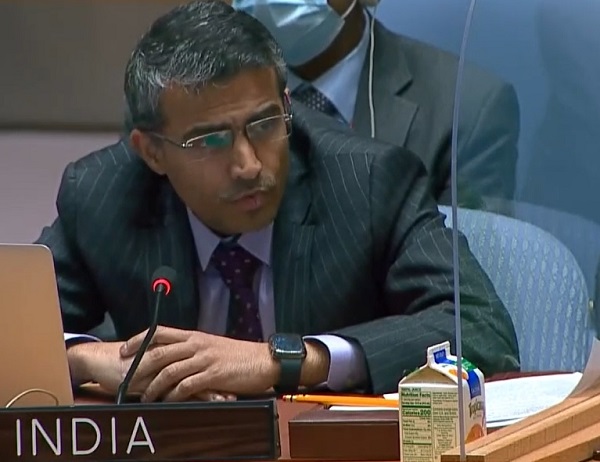United Nations, (Asian independent) Seeing the devastation brought by the Covid-19 pandemic, India has put a spotlight on the threat of terrorists using biological weapons and suggested that the UN help countries deal with the risk.
“In the Covid-era, the threat of misuse of biological agents and chemicals as weapons, combined with advances in chemistry and biology has heightened,” A.Amarnath, a counsellor at India’s UN Mission, said on Tuesday at a consultation held by the Security Council panel dealing with terrorists and weapons of mass destruction (WMD).
The consultation, he said, could be a forum to see how the panel could “assist members in this area”.
The committee headed by Mexico is called the 1540 Committee after the Council’s 2004 resolution to prevent terrorists from developing, acquiring, manufacturing or using nuclear, chemical or biological weapons and their means of delivery.
Amarnath warned that new and emerging technologies may increase the risk of terrorists deploying WMDs.
“The growing capabilities of terrorist and other non-state groups to access delivery systems like missiles and unmanned/uncrewed aerial systems (drones) have compounded the risks of terrorism using WMDs,” he added.
The threat of terrorists getting WMDs “is not in the theoretical realm” but a real threat because terrorist groups with the control of territory can develop and deploy them.
He cited reports of the UN investigative team on crimes by the Islamic State known by the acronym UNITAD.
“Their findings reveal that a terrorist group with considerable territory under its control can develop and deploy these deadly weapons within a short period of time. This is deeply disturbing,” Amarnath said.
Therefore, he added that preventing terrorists from getting WMDs “must be an urgent priority and responsibility of the international community”.
Gul Qaiser, a first Secretary in Pakistan’s UN Mission, departing from the topic of terrorists acquiring WMDs, criticised what he asserted were discriminatory restrictions on export controls of dual-use items.
It was directed at India, although he did not mention it by name, because Islamabad has objected to India receiving exemptions from the US and other countries to access civilian nuclear technology and materials, while Pakistan has not.
India has the support of majority of the members of the Nuclear Suppliers Group for joining the organisation that controls access to nuclear technology and materials, which Pakistan does not have.
China has blocked India’s membership in the NSG.
“The multilateral export-control regimes must be democratised. The arbitrary entity listing as well as discriminations, exceptions and waivers should be eliminated,” Qaiser said.
He added that there should be a UN mechanism to review “the denial cases which deprive countries of the technologies essential for development”.
“Pakistan proposes the creation of an all-inclusive open-ended working group under the auspices of the UN to prepare recommendations for more equitable access to the technologies, material and equipment,” he said.
Nepal’s Permanent Representative to UN, Amrit Bahadur Rai said despite global intentions, “a world free of WMDs has remained a far-fetched dream” and this failure has increased the danger of terrorists getting them.
He added that there should be regional and international cooperation to prevent cross-border trafficking in WMDs and dual-use items that could be used for their manufacture.
UNITAD Head Christian Ritscher reported in December 2021 that when the Islamic State overran territories in Iraq, it seized chemical factories in Iraq and used the Mosul University campus as a hub for research and development of WMDs.
“Small teams of qualified technical and scientific experts, some brought in from abroad, worked to adapt and enhance the programme,” he said.
“Through analysis of internal ISIL (Islamic State) manuals on chemical weapons production, we see the programme diversify and become more sophisticated as new expertise arrives,” he added.








